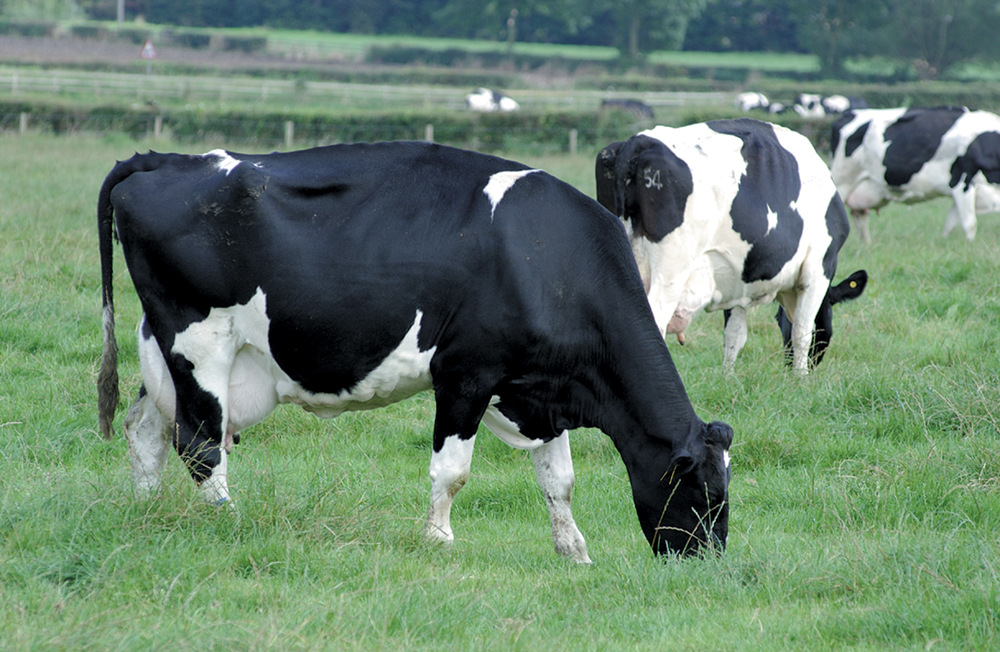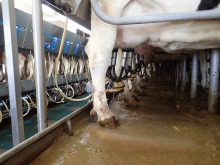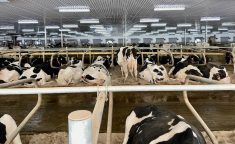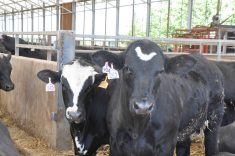Trade Minister Chrystia Freeland’s statement that the federal government is reviewing the $4.3-billion dairy compensation package announced by the former government as part of its Pacific trade deal doesn’t alarm Dairy Farmers of Canada.
A review “makes sense if the government is going to consult Canadians about the impact” of the Trans-Pacific Partnership, Yves Ruel, a DFC spokesman, said in an interview.
The TPP deal was announced on Oct. 5 and like many other groups, DFC is still reviewing its technical details, Ruel said. That includes putting a dollar figure on the possible financial impact on Canadian farmers.
Read Also

Canadian Cattle Association names Brocklebank CEO
Andrea Brocklebank will take over as chief executive officer of the Canadian Cattle Association effective March 1.
Speaking to Canadian reporters in Manila, Freeland said, “It would be very inappropriate for us to commit to specific packages given that we’re actually reviewing the agreement overall.” Compensation for dairy and other affected sectors would be decided later. Agriculture Minister Lawrence MacAulay has already said he had no objections to the TPP deal or the proposed compensation package for farmers.
The government has yet to say how it will consult with Canadians on the deal. It has yet to release the Canadian version of the proposed agreement meaning Canadians have to use the New Zealand and American versions to evaluate its provisions.
In addition to compensation, Ruel said DFC wants to see whether the new government will follow through on Conservative promises to toughen border controls on milk substitutes and ban imports of milk from cows treated with the rBST, a production-increasing drug not permitted in Canada because it harms the cows.
The Harper government compensation package included $3.9 billion for farmers plus $15 million in marketing development funds and $450 million for dairy processors.
Later, it came out that import increases would continue for 18 years in the dairy sector instead of the five years originally announced. The imports would rise from 8.3 million tonnes in the first year of the deal to 56.9 million tonnes after 18 years.
Independent Liberal Senator Celine Hervieux-Payette said that with the European and Pacific trade deals, farmers will have to cope with nearly a 20 per cent increase in dairy imports.
“Stephen Harper somehow forgot to announce that $1.5 billion of the compensation will be used to compensate the banks for losses if the value of dairy quotas declines,” she said. “The remaining $2.8 billion, to be paid out over 15 years, does not seem to be nearly enough to compensate producers.”
The Europe trade deal is still waiting for final ratification by both sides more than a year after negotiations concluded. It offered increased access for French cheese to Canadian markets. The Harper government said dairy farmers would be compensated for any financial losses that causes.
The Trans-Pacific Partnership may not be finally ratified until 2017, says Canada trade guru Peter Clark. Its crucial test will come with the American Congress where it faces numerous criticisms.
The Canadian compensation package would have to be approved by Parliament as part of legislation to implement the trade deal.

















